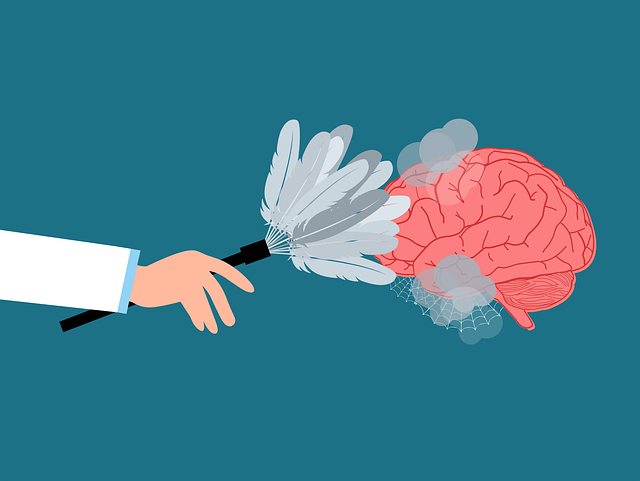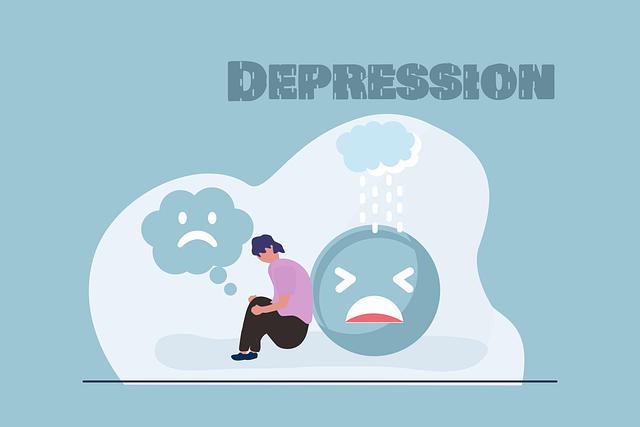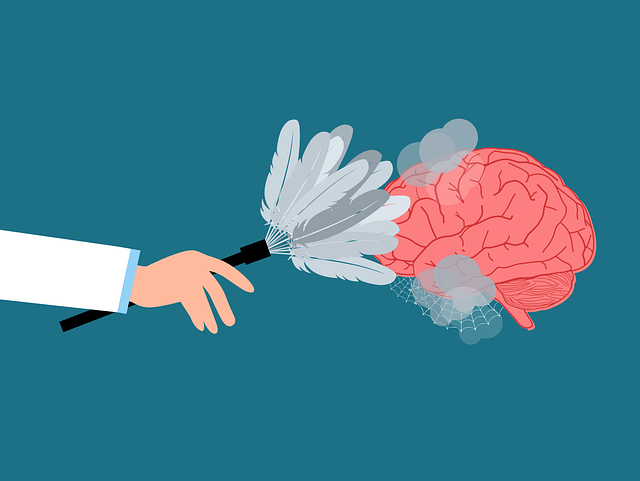Mental health stigma significantly hinders individuals from seeking critical support, especially for anxiety disorders. This issue is addressed by innovative therapies like Castle Rock Exposure and Response Prevention (CREPT) which combines exposure therapy with response prevention techniques to challenge fears and replace maladaptive responses. Educational initiatives and community engagement play pivotal roles in reducing stigma through open conversations, dispelling myths, fostering empathy, and promoting understanding of mental health issues. By integrating evidence-based practices like CREPT into local programs, communities can create supportive networks that empower individuals facing mental illness and improve overall well-being.
Mental illness stigma is a significant barrier to treatment, but efforts to reduce it are gaining momentum. This article explores diverse strategies to combat this pervasive issue, from understanding the barriers that prevent individuals from seeking help to innovative therapeutic approaches like Castle Rock Exposure and Response Prevention Therapy. We also delve into educational initiatives aimed at dispeling myths and fostering empathy within communities, emphasizing the power of supportive networks for recovery.
- Understanding Stigma: Barriers to Seeking Help
- Castle Rock Exposure and Response Prevention Therapy: A Novel Approach
- Educational Initiatives: Dispelling Myths and Promoting Empathy
- Community Engagement: Building Supportive Networks for Recovery
Understanding Stigma: Barriers to Seeking Help

Stigma surrounding mental illness often acts as a significant barrier to individuals seeking the help they need. This societal shame and discrimination can lead many to suffer in silence, avoiding professional support that could greatly improve their quality of life. The impact is profound, especially considering that early intervention is crucial for effective treatment, including Castle Rock Exposure and Response Prevention Therapy (ERP). ERP is a highly effective form of therapy that helps individuals manage anxiety disorders by re-wiring negative thought patterns and behaviors.
Understanding the roots of stigma is essential in breaking down these barriers. Misconceptions about mental illness, often fueled by media portrayals or lack of education, contribute to fear and judgment. This can make individuals feel ashamed of their experiences, deterring them from reaching out for support. Promoting positive thinking and open conversations about mental health can help combat these issues, fostering an environment where people feel safe to discuss their struggles and seek mood management strategies such as those offered by Castle Rock ERP therapy. Additionally, depression prevention initiatives that educate communities on the signs and symptoms of depression can empower people to offer support and encourage treatment-seeking behaviors.
Castle Rock Exposure and Response Prevention Therapy: A Novel Approach

Castle Rock Exposure and Response Prevention Therapy (CREPT) is a groundbreaking approach in mental wellness coaching programs development. This novel therapy focuses on helping individuals confront and overcome their fears and anxieties by gradually exposing them to distressing situations, much like its namesake—the gradual exposure to the ‘castle rock’ of one’s fears. CREPT facilitates emotional healing processes by teaching clients to replace maladaptive responses with healthier coping mechanisms. Through this process, patients learn to manage their symptoms and improve their overall mental health.
The therapy is particularly effective for various mental illnesses, including anxiety disorders and phobias. By combining exposure therapy with response prevention techniques, CREPT empowers individuals to challenge and change their perceptions, ultimately reducing the stigma associated with mental health issues. Moreover, this approach ensures a comprehensive risk assessment for mental health professionals, enabling them to tailor interventions for each client’s unique needs while prioritizing safety.
Educational Initiatives: Dispelling Myths and Promoting Empathy

Educational initiatives play a pivotal role in reducing the stigma surrounding mental illness by providing opportunities to dispel myths and foster empathy. Programs like Castle Rock Exposure and Response Prevention Therapy (ERPT) offer innovative approaches to treatment, which can significantly impact public understanding. ERPT, for instance, focuses on helping individuals confront and manage anxiety-provoking situations, thereby promoting resilience and challenging negative beliefs about themselves and their illness.
These educational efforts extend beyond therapy sessions, encompassing various forms such as mental wellness podcast series production and self-care practices workshops. By integrating emotional intelligence into these initiatives, participants gain valuable tools to navigate their mental health journeys with greater ease. Through open discussions and shared experiences, communities can build a more supportive environment where those facing mental illness feel empowered and understood.
Community Engagement: Building Supportive Networks for Recovery

In the context of mental illness stigma reduction, community engagement plays a pivotal role in fostering supportive networks that promote recovery. By integrating evidence-based therapies like Castle Rock Exposure and Response Prevention (ERP) into local initiatives, communities can enhance understanding and reduce misconceptions surrounding mental health issues. This collaborative approach not only educates but also empowers individuals to offer support, creating an environment where those struggling with their mental well-being feel less isolated.
Through community engagement, mental health awareness is elevated, encouraging open conversations about Mood Management and Mind Over Matter principles. Such initiatives can range from hosting informational sessions to forming peer support groups, all of which contribute to a more accepting and compassionate society. By breaking down barriers, these collective efforts ensure that everyone has access to the resources they need for better mental health outcomes, ultimately strengthening community bonds.
Mental illness stigma is a significant obstacle to individuals seeking help. By combining evidence-based therapies, such as Castle Rock Exposure and Response Prevention Therapy, with educational initiatives and community engagement, we can dispel myths and foster empathy. These efforts are crucial in creating supportive networks that encourage recovery and reduce the societal barriers faced by those living with mental illness.














